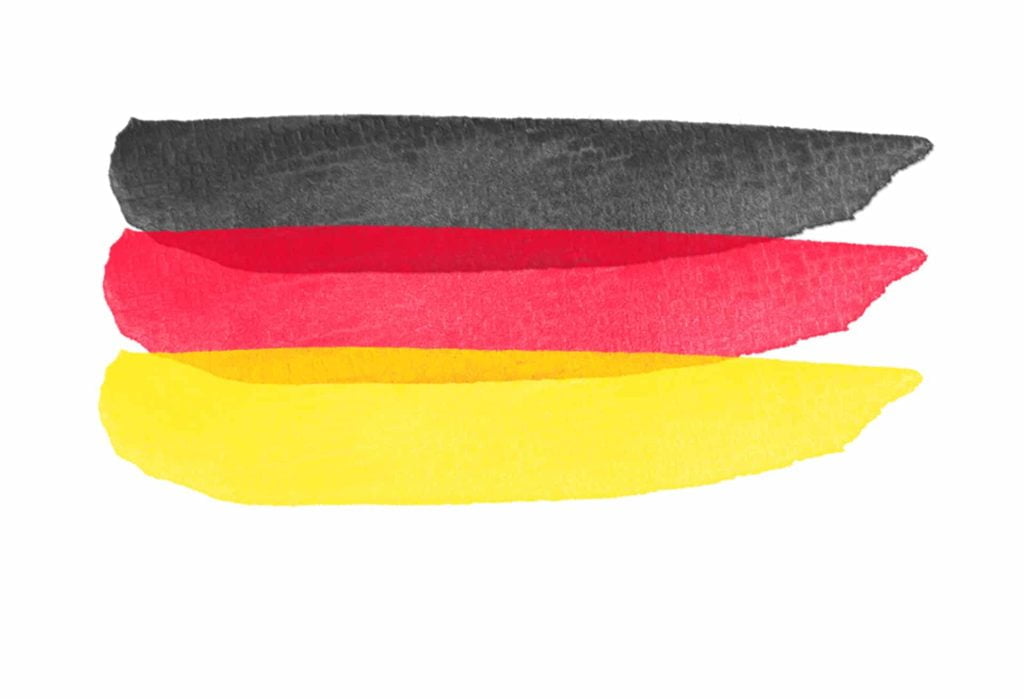
Embarking on the journey to secure Permanent Residency (PR) in Germany can be both exhilarating and daunting.
Did you know that in recent years, Germany has emerged as a top destination for expatriates, with its robust economy and rich cultural heritage? But what does it take to transition from a temporary resident to a permanent one in this land of innovation and tradition?
Navigating through the maze of regulations and requirements can be overwhelming. Are you aware of the specific eligibility criteria, or the level of German language proficiency required? What about the financial stability and accommodation conditions that the German authorities scrutinize?
We fully understand how daunting this is.
Don’t worry, don’t worry, we have done the research for you and pinned down seven crucial considerations you must account for when applying for PR in Germany.
7 Important Things to Keep in Mind When Applying for a PR in Germany
#1 Understanding PR Eligibility Requirements
Securing PR in Germany is a goal for many expatriates, but the first step is understanding the basic eligibility criteria. These criteria serve as the foundation for a successful application:
- Length of Stay: Typically, applicants must have resided in Germany for a minimum of five years on a residence permit.
- Financial Independence: Demonstrating financial stability without needing social assistance is crucial.
- Mandatory Health Insurance: Applicants must have adequate health insurance coverage.
- Secure Accommodation: Proof of stable and sufficient living space for oneself and family members.
- German Language Proficiency: A B1 level proficiency in the German language is usually required.
- Civic Integration: Completion of an integration course or evidence of assimilation into German society.
- Clean Criminal Record: A prerequisite for PR in Germany is a clean criminal record.
Consider reading: Lost in Translation When Speaking in German: Why Do Language Mishaps Happen?
Individual Circumstances and PR Requirements
While these points lay down the general framework, the importance of understanding how your individual circumstances align with these criteria cannot be overstressed.
Each applicant’s journey is unique, influenced by factors like their country of origin, professional background, and family status. For instance, highly skilled workers, researchers, and self-employed individuals might be eligible for PR in Germany under different conditions, sometimes even with a reduced residency requirement.

#2 Language Proficiency and Integration
Gaining a basic understanding of the German language is not just a requirement for obtaining PR in Germany.
The importance of German language proficiency in the PR application process cannot be overstated. It demonstrates an applicant’s commitment to adapting to life in Germany and their ability to contribute meaningfully to the community.
The German government places significant emphasis on language skills, typically requiring B1 level proficiency under the Common European Framework of Reference for Languages (CEFR).
This level of proficiency ensures that applicants can understand and respond to everyday situations, express their thoughts coherently, and grasp the nuances of the language in both professional and social settings.
Integration Courses For the PR Application Process
- Content Focus: These courses cover not only language but also important aspects of German law, culture, and history.
- Course Structure: Typically comprising 600 to 1,000 hours of instruction, these courses are designed to equip immigrants with comprehensive knowledge.
- Certification: Successful completion of an integration course is often necessary for PR applications, evidenced by a “Zertifikat Integrationskurs“.
- Flexibility for Certain Groups: For certain applicant categories, such as highly skilled professionals, shorter integration courses might be applicable.
You might be interested in this: Sustainability in Berlin: 7 Simple Ways Make Your Apartment More Eco-friendly

#3 Financial Stability and Employment
While moving to Germany is a dream many harbor and hold on to, there are some basic financial responsibilities that are required to make it a reality.
The Need for a Stable Job and Financial Independence
A cornerstone of applying for PR in Germany is proving financial stability and independence. This requirement underscores the importance the German government places on ensuring that PR applicants are not reliant on public funds and can sustain themselves and their families.
A stable job plays a critical role in this context. It’s not just about earning a regular income; it’s about demonstrating the ability to contribute to the economy and society.
Employment serves as a tangible indicator of an individual’s integration into the German way of life. A consistent employment history, particularly in a field relevant to one’s qualifications, adds substantial weight to the PR application.
How Employment History in Germany Affects PR Application
A continuous and relevant employment record shows more than just financial independence; it reflects a person’s integration into the German workforce. This aspect is particularly important because:
- It demonstrates the applicant’s contribution to social security systems, including health insurance and pension schemes.
- Long-term employment indicates reliability and stability, qualities valued in German society.
- Gaps in employment or frequent job changes might raise concerns about the applicant’s ability to maintain stable living conditions in the long run.
#4 Health Insurance and Social Security Contributions
Germany views the social security system as pivotal in ensuring the welfare of its residents, and this extends to applicants for Permanent Residency (PR). Understanding the intricate structure of health insurance and social security contributions is crucial for anyone seeking PR in Germany.
Mandatory Health Insurance
Health insurance in Germany is not just a recommendation; it’s a mandatory requirement for all residents, including PR applicants.
The system is divided into two main types: public (Gesetzliche Krankenversicherung) and private (Private Krankenversicherung). Applicants must be enrolled in one of these systems to qualify for PR.
This requirement underscores the commitment of applicants to abide by the country’s regulations and ensures they are adequately covered for healthcare needs.

Social Security Contributions
Social security contributions are one of the other fundamental aspects of the working life in Germany. These contributions, which are automatically deducted from salaries, go towards pension, unemployment insurance, health insurance, nursing care insurance, and accident insurance.
For PR applicants, consistent contributions are indicative of:
- Long-term employment and financial stability.
- Integration into the German social system.
- Preparation for future eventualities, such as retirement or healthcare needs.
Also read: 10 Tips for Finding the Perfect Apartment in Berlin
#5 Accommodation and Living Conditions
Securing Permanent Residency (PR) in Germany is not solely about fulfilling bureaucratic requirements; it also involves demonstrating the ability to establish a stable and adequate living environment.
The significance of secure accommodation in the PR process is twofold: it evidences the applicant’s stability and integration into German society and meets a fundamental human need.
The Role of Stable and Adequate Housing in the PR Process
Stable housing is a clear indicator of an individual’s ability to maintain a consistent and orderly life in Germany. It shows long-term planning and commitment to living in the country.
For authorities, a permanent address where the applicant has resided for a significant amount of time speaks volumes about their intent to integrate and contribute to the local community.

Legal and Practical Considerations Related to Accommodation
When it comes to accommodation, several factors are considered in the context of a PR application:
- Proof of Residence: Applicants must provide evidence of a fixed address in Germany, typically in the form of a rental agreement or property ownership.
- Adequate Space: The living space must be deemed sufficient for the size of the applicant’s family.
- Registration Certificate (Anmeldung): Registration with the local residents’ registration office is mandatory for all residents, including PR applicants.
- No Outstanding Debts: Evidence of rent payments without arrears and no outstanding utility bills.
- Safety and Compliance: The accommodation should comply with safety standards and local housing regulations.
You might enjoy this: 7 Best German Language Schools in Berlin
#6 Legal Record and Background Checks
Maintaining a clean legal record is a critical aspect of applying for Permanent Residency (PR) in Germany. A pristine legal history assures the German authorities of an applicant’s respect for the law and ability to live harmoniously within society.
This aspect of the application process underscores the importance Germany places on safety, order, and compliance with legal standards.

Types of Background Checks Conducted During the PR Application Process
The German authorities conduct various background checks to ensure that applicants meet the legal standards required for PR:
- Criminal Record Check: Verifying that the applicant has no history of criminal activity. This is a standard procedure to assess an applicant’s legal background.
- Financial Record Analysis: Scrutiny of financial history, including any debts or financial delinquencies, which could indicate irresponsibility or instability.
- Residence History Verification: Examination of the applicant’s residence history in Germany and other countries, ensuring there are no legal issues tied to previous residencies.
- Employment Verification: Checking the legality and consistency of the applicant’s employment history.
We recommend checking this out: Struggling with German? Here Is Our Awesome Guide to Mastering German Vocabulary
#7 Bureaucracy Based Documentation and Deadlines
There is a large amount of bureaucracy based documentation that is required for applying for a PR in Germany. The process is extensive and requires careful consideration and scrutiny.
Necessary Documentation for PR Application
Applicants must gather a range of documents, including:
- Valid Passport: An up-to-date and valid passport is fundamental.
- Current Residence Permit: Evidence of the legal basis of the applicant’s current stay in Germany.
- Proof of Residence: Rental contracts or deeds demonstrating stable accommodation.
- Financial Records: Bank statements and proof of income to demonstrate financial stability.
- Proof of Language Proficiency: Certificates showing language skills, typically at B1 level.
- Employment Documents: If employed, work contracts and recent payslips.
- Social Security Contribution Records: Documentation of contributions to the German social security system.
- Integration Course Certificate: If applicable, proof of completion of an integration course.
Importance of Adhering to Deadlines and Submission Guidelines
The importance of adhering to deadlines and submission guidelines in the PR application process cannot be overstated. Late submissions or incomplete documentation can lead to delays, or worse, rejection of the application.
Applicants should meticulously check and double-check all requirements, ensuring each document is current, correctly filled out, and submitted within the specified timeframe.
The German Permanent Residence Labyrinth
From mastering the German language to ensuring financial stability, each of the seven key considerations we’ve explored is a vital cog in the wheel of this intricate process.
Remember, it’s not just about meeting requirements; it’s about demonstrating your commitment and readiness to blend into the rich tapestry of German life. Approach each step with diligence and foresight, and your path to calling Germany your permanent home will be as smooth and rewarding as the country’s famed Autobahns.




